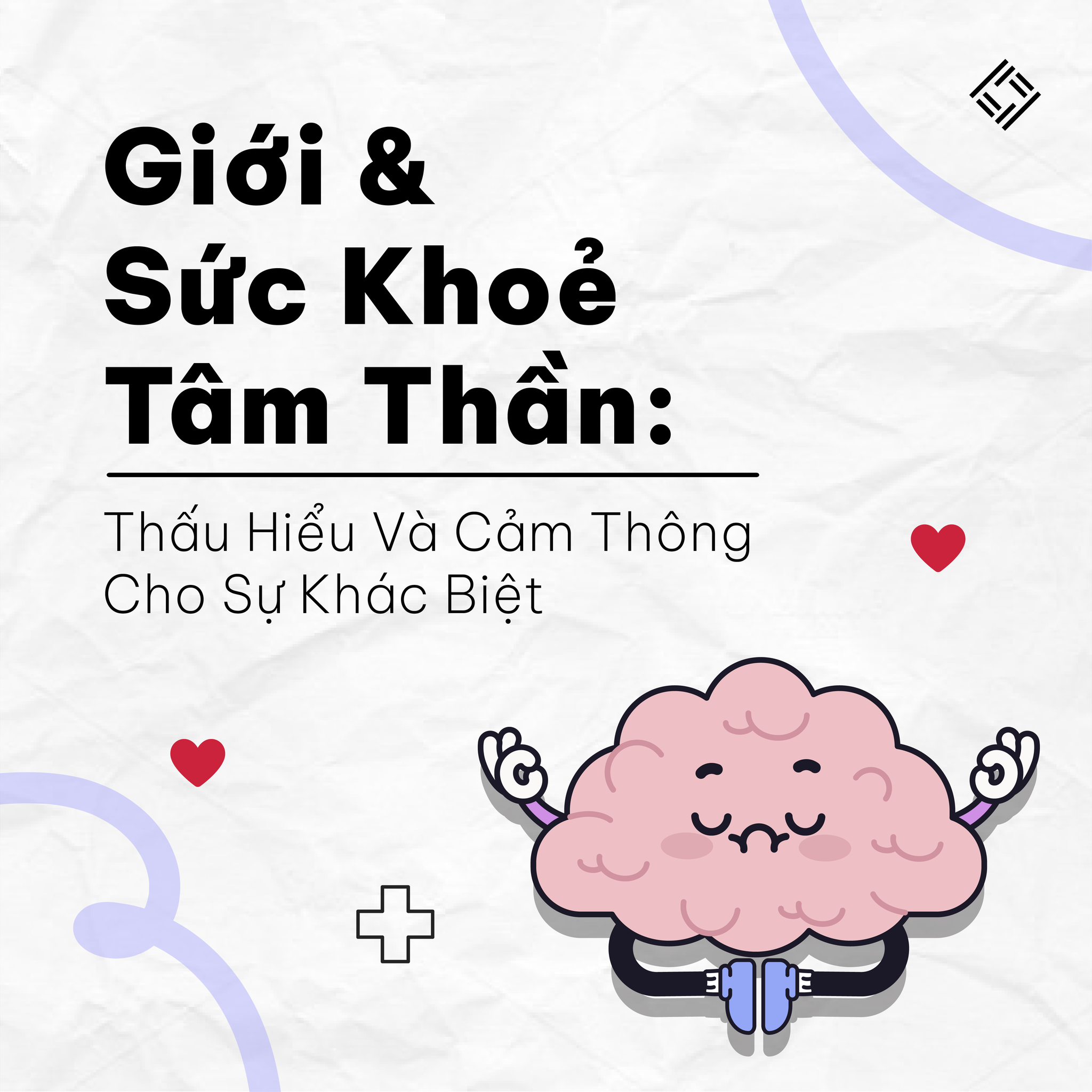GENDER AND MENTAL HEALTH: UNDERSTANDING AND EMPATHY
![]()

Illustration by: M.A.P
According to the WHO, mental health is "the absence of mental disorders and the ability to think, learn and understand one's emotions and reactions." In contrast to our physical health, we often inadvertently forget and downplay the consequences of mental illness. However, did you know people cannot be fully healthy without the integrity of their mental health? 40% of global health problems are mental health-related diseases. Of these, 10% of diseases are included in The Global Burden of Disease list when associated with countless casualties [1]. Non-life-threatening cases still bring consequences to sufferers, such as learning difficulties, reduced work productivity, increased poverty, and increased mortality [1].
This past May – for the U.S. and October 10 every year – for the whole world – were chosen as days celebrating mental health to increase people's awareness of the causes and methods to overcome psychological problems [2]. Are there differences to be aware of when it comes to mental health care for genders?
GENDER AND MENTAL HEALTH
Psychological problems stem from a variety of causes, such as difficult living conditions, violence, or pressure from family and society [3]. People's emotions, as well as reactions to negativity in life, also vary depending on geographical location, age, and depending on both gender and gender. According to WHO, the first psychological differences between women and men come from biological factors [3]. For example, hormonal changes in each menstrual cycle in women cause erratic emotional changes, leading to women being more likely to develop emotional disorders (such as anxiety disorders, bipolar disorder, depression, etc.) if not given timely attention and care [3][4].
In addition, WHO and author Mustafa M Afifi also points out that gender stereotypes created by culture and society are also a significant cause of psychological problems in both men and women.
Adolescent and adult females are frequently under appearance pressure which causes high rates of eating disorders [3]. In addition, standards of sacrifice and care for the family have tied women's emotions to four walls. Their joy, sadness, fear, or anger now depends entirely on others. The authors of the research paper "Explanatory variables for women's increased risk for mental health problems in Vietnam" collaborated with Da Nang City Psychiatric Hospital and several other small hospitals in Central Vietnam to conduct a mental health-related survey on 974 people. Vietnamese women and mothers tend to be more stressed and in crisis before difficulties and dangers in life, such as natural disasters, because, in addition to worrying about themselves, they also have to worry about caring for the whole extended family [5].
In contrast, men have more problems controlling and healing negative emotions such as anger, sadness [3]. We all know that men are always associated with an independent, strong image, carrying both family and society. This standard has forced men not to express weak emotions like fatigue, fear, etc., and inadvertently formed constraints. In other words, if women deal with "underground" psychological disorders, men have problems with "flare-up" disorders. This leads to many unintended consequences: men tend to seek psychological relief through alcohol [5], hurting themselves or others, or ignoring their problems until the disease worsens instead of seeking healing because they dare not talk about their fatigue [3].
VIETNAM'S POST-PANDEMIC CONTEXT - WHAT SHOULD WE DO?
In addition to the deterioration in physical health, COVID-19 has been significantly affecting people's mental health. Take an example from the statistics of VNU-HCMC. In HCMC, 56.8% of students lose their spirit and motivation to study and work, 25-30% of students become more shy and shy about relationships, and 30-40% have other emotional problems such as mood changes, anxiety, sadness for no reason... [6]. Post-COVID-19, the existing gender pressures are now weighing more heavily on the shoulders of both men and women as COVID-19 has caused a lot of damage and waste in many aspects: time, productivity, and income... Some pressures include age pressure, getting married, and having children before aging (for women) or pressure to restore the economy and build a career (for men).
Mental health is an integral part of a person's overall health that should be given the same attention as physical health. Through some of the examples mentioned above, we can see that anyone can suffer from mental problems. Besides, each of us has different psychological experiences before things happen, such as not all women feel stable in the face of pressure to be patient, prioritize the feelings of others over themselves, or not all men can be cold, tough to ignore all fatigue. Therefore, empathy and understanding of the different experiences of each person of different ages or genders are important things we need to pay attention to when dealing with those around us, especially in cases of psychological instability.